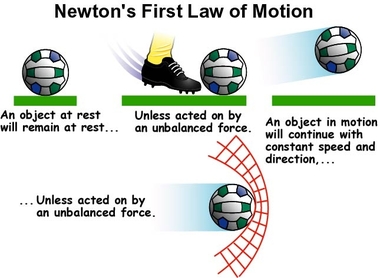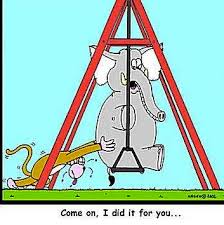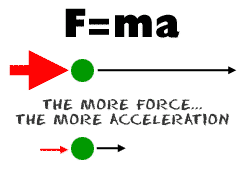Newton's Laws
Newton's 1st Law states that an object in motion stays in motion and an object at rest stays at rest until acted on by a force.

Newton's 2nd law has to do with force, acceleration, and mass. It really means that if you increase mass then acceleration will decrease (of course because it weighted down) and if you increase force, acceleration will increase. They are all related in a formula: Force=mass x acceleration. An example would be if a pitch a baseball it will go faster than if I tossed it gently because I put more force behind the pitch! Also, heavier things require more force to accelerate like the illustration below.


Newton's 3rd law says that for every action there is an equal and opposite reaction. The best example of this is a rocket launch. The gases combust out the bottom of the rocket and in turn the rocket gets pushed up in air. Equal and opposite forces!



Newton's 2nd law has to do with force, acceleration, and mass. It really means that if you increase mass then acceleration will decrease (of course because it weighted down) and if you increase force, acceleration will increase. They are all related in a formula: Force=mass x acceleration. An example would be if a pitch a baseball it will go faster than if I tossed it gently because I put more force behind the pitch! Also, heavier things require more force to accelerate like the illustration below.

Newton's 3rd law says that for every action there is an equal and opposite reaction. The best example of this is a rocket launch. The gases combust out the bottom of the rocket and in turn the rocket gets pushed up in air. Equal and opposite forces!


Comments
Post a Comment